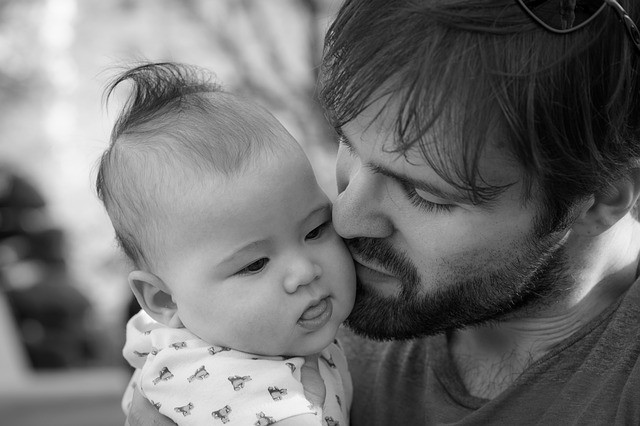
Fathers Mental Health Matters
This information originally published at fathersmentalhealth.com
Healthy Fathers Lead to Healthy Families
Are you an Expectant Father, New Father or have you been fathering for years? Fatherhood brings about new experiences, fun and joy, it can also be a stressful experience at times when we are tired, not sure what to do, or bothered about other things in our life such as work and money. Sometimes our stress becomes anger or sadness or anxiety. What happens when fathers feel angry, sad or anxious? Men in general are more likely to express these emotions by avoiding situations and conversations, engage in physical activity, distract themselves with things like work and it may even lead to increased alcohol use or loud and harmful reactions. I’m hoping that we can begin to deal with our difficult feelings through conversations. JOIN THE CONVERSATION.
FATHERS MENTAL HEALTH MATTERS
It is common for new fathers to experience a combination of excitement, joy, stress, and fear as they transition into parenthood.
NEW FATHERS ARE ENCOURAGED TO:
- Embrace fatherhood and participate in all aspects of child care
- Share their emotions and experiences with their partner, close family and friends
- Stay connected with friends
- Refuel with a healthy diet and activity level
- Continue at least one of your healthy outlets for stress
CAUTION, 10% OF NEW FATHERS
experience symptoms of depression that interfere with their life at home and work. Common symptoms of Paternal Perinatal Depression (PPD) include:
- Depressed and/or irritable mood
- Negative self-talk / Loss of selfconfidence
- Avoidance and isolation
- Thoughts of escape or death
- Excessive guilt
- Fatigue / low energy
- Impaired concentration
- Change in appetite/weight
- Disrupted sleep
NEW FATHERS ARE AT RISK OF PPD IF THEY HAVE ONE OR MORE OF THE FOLLOWING:
- Personal history of Major Depressive Disorder
- Wife has Postpartum Depression
- Previous pregnancy loss
- Relationship dissatisfaction
- Job dissatisfaction/loss
NEW FATHERS TEND TO COPE WITH DEPRESSIVE SYMPTOMS BY:
- Dismissing negative emotions
- Avoiding family, people, work
- Increasing time spent at work
- Anger outbursts
- Increase consumption of food, alcohol, marijuana, etc.
The good news is that more and more fathers are asking for help!
It is important for fathers with PPD to seek help because untreated PPD can negatively affect the whole family. If one partner is depressed the other partner is more likely to become depressed (‘Dual Depression’) and it becomes more difficult to treat.
Fathers who are depressed are less engaged with their children and have more relationship difficulties. Children of fathers who were depressed during or after pregnancy have an increased risk of developing behavioral and emotional difficulties in childhood and adolescence.
We hope that treating mental illness in fathers will also improve the well-being of their children.
The Fathers Mental Health Website was founded by Andrew Howlett, MD, FRCPC and Ben Rosen, MD, FRCPC, MSc. Their mission is to be a resource for clinicians, researchers, educators and fathers to generate knowledge, ideas and solutions that support men in their role as fathers.
For information on where to find help, visit our resource page.